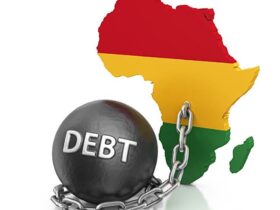Report: Funding for Startup may drop to $3bn
- 11:06 am
- October 24, 2023


LATEST POSTS
Investments in startups based in Nigeria and other African countries are expected to decrease to $3 billion by the end of 2023, marking a challenging year for these startups.
This represents a $1.5 billion drop from the funding they received from investors in 2022. What’s particularly concerning is that debt financing will take a more prominent role in 2023, while equity funding continues to decline. According to data from “Africa: The Big Deal,” the total funding for African startups by the end of the third quarter in 2023 amounted to $2.3 billion.
The data company, which monitors transactions of $100,000 and above, revealed that no startup on the African continent secured a major funding deal in Q3 2023.

Their report stated, “During Q3 2023, startups in Africa secured $500 million in funding, consisting of $324 million in equity and $176 million in debt. Since the beginning of the year, a total of $2.3 billion has been raised ($1.4 billion in equity and $0.9 billion in debt), which is less than half of the amount raised in 2022.”
The amount of funding raised in the third quarter of 2023, considering both equity and a combination of equity and debt, has reached its lowest point since the fourth quarter of 2020. Looking ahead, it is anticipated that the total funding for the year 2023 may reach $3 billion when considering both equity and debt, which is $1.5 billion less than the levels seen in 2022 and 2021. Furthermore, it is unlikely that equity funding in 2023 will even reach half of what was raised in 2022 and 2021.
Nigeria continues to maintain its leading position on the continent in terms of equity funding, contributing to 36 percent of the total equity funding. While Egypt’s performance has been below expectations this year, there has been a relatively balanced distribution of equity funding among the four major African countries (Nigeria, Egypt, Kenya, and South Africa) since the beginning of 2023.
It has been observed that over the past four quarters, there has been a steady increase in the percentage of equity funding going to startups with no female co-founders or co-founders who are women, while less than 2 percent of funding has been raised by startups with no male co-founders.
The year 2023 has proven to be challenging for startups, with funding reaching historically low levels and an increase in borrowing. In Nigeria, for instance, startup funding dropped to $470 million in the last year (from July 2022 to June 2023), marking a significant 77 percent decline from the $2 billion raised between July 2021 and June 2022.
This sharp decrease in funding has garnered the attention of the Nigerian government, which has recently announced a plan to boost annual funding rounds for startups to reach $5 billion by the year 2027. At Punch news
Dr. Bosun Tijani, the Minister of Communications, Innovation, and Digital Economy, stated, “Recognizing the crucial role of patient capital in the growth of startups, we are committed to increasing the availability of local patient capital. Our intention is to create an environment that allows startups to secure the funding they need to thrive locally and encourages startups to be established within our country.”
Other News


















